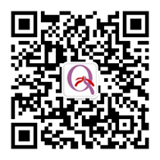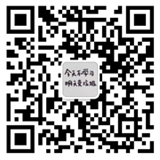Passage One
Questions 21 to 25 are based on the following passage.
Communications technologies are far from equal when it comes to conveying the truth. The first study to compare honesty across a range of communication media has found that people are twice as likely to tell lies in phone conversations as they are in emails. The fact that emails are automatically recorded 一and can come back to haunt you一appears to be the key to the finding.
Jeff Hancock of Cornell University in Ithaca, New York, asked 30 students to keep a communications diary for a week. In it they noted the number of conversations or email exchanges they had lasting more than 10 minutes, and confessed to how many lies they told. Hancock then worked out the number of lies per conversation for each medium. He found that lies made up 14 per cent of emails, 21 per cent of instant messages, 27 percent of face-to-face interactions and an astonishing 37 percent of phone calls.
His results, to be presented at the conference on human-computer interaction in Vienna, Austria, in April, have surprised psychologists. Some expected e-mailers to be the biggest liars, reasoning that because deception makes people uncomfortable, the detachment of e-mailing would make it easier to lie. Others expected people to lie more in face-to-face exchanges because we are most practiced at that form of communication.
But Hancock says it is also crucial whether a conversation is being recorded and could be reread, and whether it occurs in real time. People appear to be afraid to lie when they know the communication could later be used to hold them to account, he says. This is why fewer lies appear in email than on the phone.
People are also more likely to lie in real time一in an instant message to phone call, say 一than if they have time to think of a response, says Hancock. He found many lies are spontaneous responses to an unexpected demand, such as: "Do you like my dress?,,
Hancock hopes his research will help companies work out the best ways for their employees to communicate. For instance, the phone might be the best medium for sales where employees are encouraged to stretch the truth. But, given his result, work assessment, where honesty is a priority, might be best done using email.
21. Hancock's study focuses on .
A) the consequences of lying in various communications media
B) the success of communications technologies in conveying ideas
C) people's preference in selecting communications technologies
D) people's honesty levels across a range of communications media
22. Hancock's research finding surprised those who believed that .
A) people are less likely to lie in instant messages
B) people are unlikely to lie in face-to-face interactions
C) people are most likely to lie in e-mail communication
D) People are twice as likely to lie in phone conversations
23. According to the passage, why are people more likely to tell the truth through certain media of communication?
A) They are afraid of leaving behind traces of their lies.
B) They believe that honesty is the best policy.
C) They tend to be relaxed when using those media.
D) They are most practiced at those forms of communication.
24. According to Hancock, the telephone is a preferable medium for promoting sales because
A) salesmen can talk directly to their customers
B) salesmen may feel less restrained to exaggerate
C) salesmen can impress customers as being trustworthy
D) salesmen may pass on instant messages effectively
25. It can be inferred from the passage that .
A) honesty should be encouraged in interpersonal communications
B) more employers will use e-mails to communicate with their employees
C) suitable media should be chosen for different communication purposes
D) email is now the dominant medium of communication within a company













 电话咨询
电话咨询 微信咨询
微信咨询 在线咨询
在线咨询